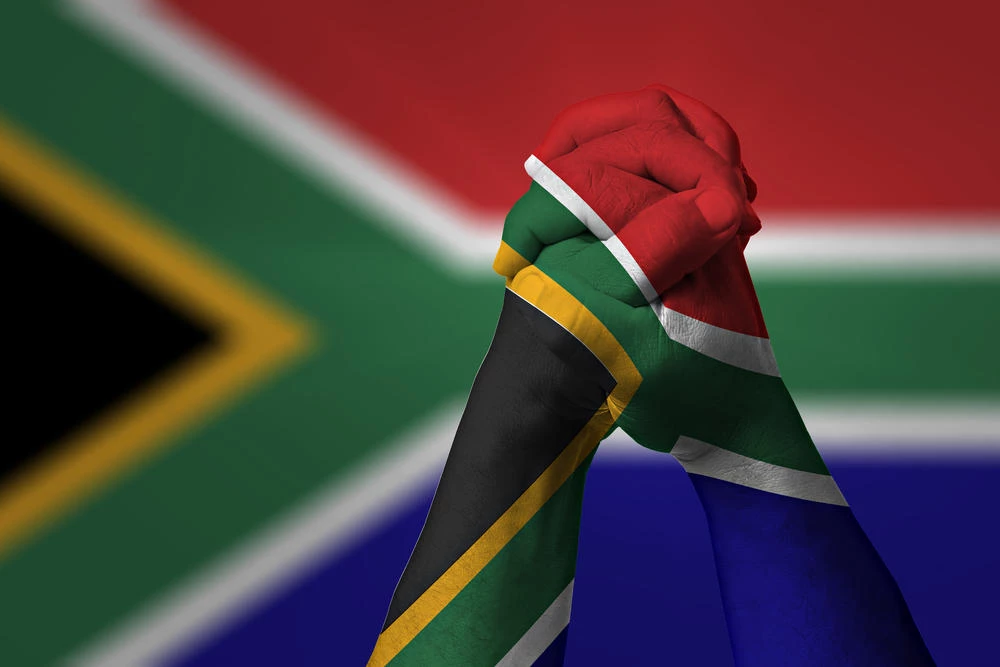Cape Town, the enchanting jewel of South Africa, is a city that encapsulates the vibrant diversity and rich cultural heritage of the country. As you explore this captivating city, you will be immersed in a symphony of languages, reflecting the now 12 official languages of South Africa. From the melodic clicks of Xhosa to the poetic beauty of Afrikaans, Cape Town becomes a linguistic tapestry that entices and enthrals visitors. We invite you to embark on a linguistic journey through Cape Town, discovering the fascinating languages that shape the city’s cultural fabric by simply saying hello.
Table of Contents
The 11 Official Languages of South Africa


1. Xhosa
The Clicks of Tradition With its unique system of clicks, Xhosa is one of the most captivating languages spoken in Cape Town. As you stroll through the city’s vibrant townships, you may hear the rhythmic sounds of Xhosa conversations and songs. The Xhosa people, known for their vibrant culture, warm hospitality, and intricate beadwork, will welcome you with open arms. Engage with locals, learn common phrases like “Molo” (Hello) or “Enkosi” (Thank you), and immerse yourself in the rhythmic cadence of Xhosa.
2. Afrikaans
A Language of Heritage Derived from Dutch and infused with local influences, Afrikaans is a language that reflects the complex history of Cape Town. You’ll encounter Afrikaans as you wander through the city’s charming streets, shop in bustling markets, or savour traditional South African dishes. The language is known for its poetic beauty and unique expressions. Engage with locals, learn phrases like “Goeiedag” (Good day) or “Lekker” (Delicious), and unravel the rich tapestry of Afrikaans heritage.
3. English
The Lingua Franca English serves as the lingua franca in Cape Town, making it easier for international visitors to navigate and communicate. From street signs to restaurant menus, English is widely used throughout the city. Cape Town’s locals are known for their warm hospitality and willingness to assist visitors, making English an invaluable tool for exploring the city’s hidden gems.
4. Zulu
The Rhythm of the Heart Zulu, a language spoken by millions in South Africa, resonates with the vibrant rhythm of Cape Town’s diverse communities. Engage with Zulu-speaking locals, embrace their warm smiles, and learn simple phrases like “Sawubona” (Hello) or “Hamba kahle” (Goodbye). The melodic tones of Zulu will echo in your memories as you navigate the city’s colourful streets.
5. Northern Sotho
A Taste of Traditional Wisdom As you delve into Cape Town’s vibrant culture, you may encounter the wisdom and rich traditions of the Northern Sotho people. Engage with locals, and learn phrases like “Dumela” (Hello) or “Kea leboga” (Thank you). Immerse yourself in the intricate tapestry of Northern Sotho customs, dances, and folklore, which offer a glimpse into the city’s diverse heritage.
6. Tswana
A Warm Embrace Tswana, a language known for its mellifluous sounds, is spoken by the Tswana people in Cape Town. As you navigate the city’s bustling markets or indulge in local cuisine, engage with Tswana-speaking locals and learn phrases like “Dumela” (Hello) or “Ke a leboga” (Thank you). Their warm embrace will make you feel at home in this vibrant city.
7. Sotho
The Language of Unity Sotho, with its harmonious tones, represents the unity of the Basotho people in Cape Town. Engage with locals, learn phrases like “Dumela” (Hello) or “Ke a leboha” (Thank you), and embrace the sense of community that emanates from the Sotho culture. Immerse yourself in the lively atmosphere of Cape Town and let the spirit of unity guide your journey.
8. Tsonga
The Melody of Nature The Tsonga language reflects the deep connection between the people and the natural wonders of Cape Town. Engage with Tsonga-speaking locals, learn phrases like “Avuxeni” (Hello) or “Ndza ku khensa” (Thank you), and embark on an adventure through the city’s breathtaking landscapes. Let the melodious sounds of Tsonga guide you as you explore Cape Town’s untamed beauty.
9. Swazi
A Language of Royalty As you wander through Cape Town, you may encounter the Swazi language, spoken by the Swazi people who have made this vibrant city their home. Engage with locals, learn phrases like “Sawubona” (Hello) or “Ngiyabonga” (Thank you), and embrace the regal elegance of Swazi customs and traditions. Let the language of royalty accompany you on your journey through Cape Town.
10. Venda
The Echoes of Ancient Wisdom Venda, a language rooted in ancient wisdom, resonates through Cape Town’s cultural tapestry. Engage with Venda-speaking locals, learn phrases like “Ndaa” (Hello) or “Aa livhuwa” (Thank you), and immerse yourself in the captivating history and artistic heritage of the Venda people. Let the echoes of ancient wisdom guide you to Cape Town’s hidden treasures.
11. Ndebele
A Tapestry of Colors The Ndebele language, known for its vibrant and expressive nature, mirrors the rich tapestry of Cape Town’s diverse communities. Engage with Ndebele-speaking locals, learn phrases like “Lotjhani” (Hello) or “Ngiyabonga” (Thank you), and witness the colourful geometric patterns that adorn the city’s walls and textiles, a testament to the Ndebele artistic heritage.
12. Sign Language
As of recent Sign Language had been recognised as the 12th official language of South Africa. This has been recognised in order to promote the right of people who are hard of hearing and deaf. Sign Language was added to the official languages officially in May 2023.
How to Say Hello in all 11 South African Languages

- Afrikaans
- Where to say it: Primarily spoken in the Western Cape.
- How to say it: “Hallo”
- Phonetic spelling: [ha-lo]
- English
- Where to say it: English is spoken widely across South Africa.
- How to say it: “Hello”
- Phonetic spelling: [he-lo]
- Ndebele (isiNdebele)
- Where to say it: Spoken mainly in Mpumalanga and Gauteng.
- How to say it: “Lotjhani”
- Phonetic spelling: [lo-tjha-ni]
- Northern Sotho (Sepedi)
- Where to say it: Mostly spoken in Limpopo, Gauteng, and Mpumalanga.
- How to say it: “Dumela”
- Phonetic spelling: [du-me-la]
- Sotho (Sesotho)
- Where to say it: Primarily spoken in Free State, as well as in Gauteng and the Eastern Cape.
- How to say it: “Dumela”
- Phonetic spelling: [du-me-la]
- Swazi (siSwati)
- Where to say it: Mainly used in the southeastern region bordering Eswatini (Swaziland).
- How to say it: “Sawubona”
- Phonetic spelling: [sa-wu-bo-na]
- Tsonga (Xitsonga)
- Where to say it: Tsonga speakers are largely found in Limpopo and Mpumalanga.
- How to say it: “Avuxeni”
- Phonetic spelling: [a-vu-xe-ni]
- Tswana (Setswana)
- Where to say it: Predominantly spoken in the North West.
- How to say it: “Dumela”
- Phonetic spelling: [du-me-la]
- Venda (Tshivenda)
- Where to say it: Mainly spoken in Limpopo.
- How to say it: “Ndaa”
- Phonetic spelling: [nda-a]
- Xhosa (isiXhosa)
- Where to say it: Primarily spoken in the Eastern Cape and Western Cape.
- How to say it: “Molo” (to one person), “Molweni” (to more than one person)
- Phonetic spelling: [mo-lo], [mo-lwe-ni]
- Zulu (isiZulu)
- Where to say it: Mostly spoken in KwaZulu-Natal.
- How to say it: “Sawubona”
- Phonetic spelling: [sa-wu-bo-na]
- Sign Language
Follow these steps:
a. Raise your dominant hand up to shoulder level, palm facing outward and fingers extended.
b. Make a small, quick wave or movement with your hand from side to side.
c. Maintain eye contact and a friendly expression while greeting the person.
Please note that the phonetic spellings are simplified, and some languages have unique sounds that do not have direct equivalents in English. Also, greetings can differ based on the formality of the situation and the time of day.
Cape Town’s linguistic diversity, represented by South Africa’s 12 official languages, adds a unique layer of charm to the city’s cultural fabric. As you explore Cape Town, engage with locals, learn simple phrases, and embrace the warmth and diversity that emanate from each language. Let the symphony of languages guide you through the streets, markets, and landscapes, allowing you to forge a deeper connection with the people and the vibrant spirit of Cape Town






